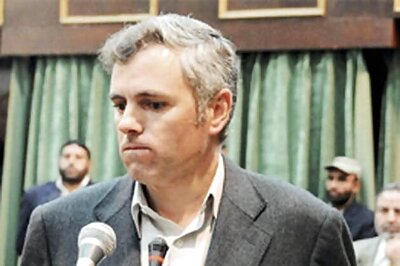
views
New Delhi: Even as global surveys paint a downcast picture of Indian women, a study by a Hindu nationalist organisation has spotted smiles where others see sorrow.
The Rashtra Sevika Samiti, a women’s group inspired by the Rashtriya Swayamsevak Sangh (RSS), is set to release its findings on 24 September in the capital. And the organisation says the “largest survey on the status of Indian women” has found 64 per cent of them are happy.
The survey, done by Pune-based Drishti Stree Adhyayan Prabodhan Kendra (DSAPK) affiliated to the RSS, will be released by 'Sarsanghchalak' Mohan Bhagwat.
The development comes months after a Thomson Reuters poll involving global experts pegged India as the most dangerous country for women. It underscored government data showing reported cases of crimes against women rose by 83 per cent between 2007 and 2016.
While the Samiti is considered the women’s wing of the RSS, its members often say that the group is independent of the Sangh though sharing its ideology.
Happy face
Two years ago, right-wing organisations associated with the Sangh Parivar (RSS family) hit the ground to carry out a survey on the status of Indian women across 574 districts of the country. Sita Annadanam, the pramukh karyavahika (general secretary) of Rashtra Sevika Samiti, said, “We have conducted a large-scale survey across many districts and on various parameters. In this, our main focus has been on emotional quotient or happiness/well-being index. What do we know from past reports? They tell us that out of 100, there are 17 Indian women who are happy.”
But the figure is wrong, she added. “Our largest survey in 574 districts of the country shows that 64 per cent of women in the country are happy. We were joined by the VHP, Vidya Bharati, ABVP and many others to conduct the survey in their areas and ask question on well-being. The number we got casts doubts on reports from the past.”
The World Economic Forum said in 2018 that India “needs to make improvements across the board, from women's participation to getting more women into senior and professional roles”. The statement came after the country ranked 108th in the WEF Global Gender Gap Report.
The WEF emphasised that India continues to rank third-lowest in the world on health and survival, remaining the least-improved country on the sub-index over the past decade.
India also ranked 95th out of 129 countries on the Sustainable Development Goals Gender Index, developed by UK-based Equal Measures 2030, looking at aspects such as poverty, health, education, literacy, political representation and equality at the workplace.
“For years we have worked for the uplift of society but we don’t know the real picture,” Annadanam said. “So, we started on the largest such survey ever. So far, we have been dependent on Western reports or reports coming from paid centres. On the other hand, ours was done voluntarily.”
She added, “Finally the world will know how happy Indian women are. We went to areas where women were illiterate and poor, not having any money. Yet they lived in anand (joy).”
Annadanam courted controversy in 2016 when she denied the existence of marital rape and said social evils were prevalent in Indian society due to 1,000 years of Western influence.
“Women don’t have absolute right over body”
In 1936, activist Laxmibai Kelkar visited Dr KB Hedgewar, the founder of the Rashtriya Swayamsevak Sangh, in a bid to persuade him to start a women's wing of the RSS. Hedgewar, though, advised her to establish a separate organisation that would be autonomous and independent of the Sangh. He, however, promised support and guidance. Following this, Kelkar founded the Rashtra Sevika Samiti on 25 October 1936.
The Samiti now has over 300 centres where girls learn self-defence techniques and women connect with each other on religious and social issues. “Women join us and understand the responsibilities towards their families,” said Annadanam.
On women having absolute right over their body and deciding on abortions, she said, “Ek ka nahi dono ka hota hai (Not just one, the couple is responsible)… there is also something called right to birth. How can we curtail that?”
On Wednesday, the government told the Supreme Court that a pregnant woman’s right to abort is not “absolute”.
“The Indian woman does not think like this – absolute. She keeps family in mind. This is a very selfish thought which has no Indian value,” Annadanam added.



















Comments
0 comment